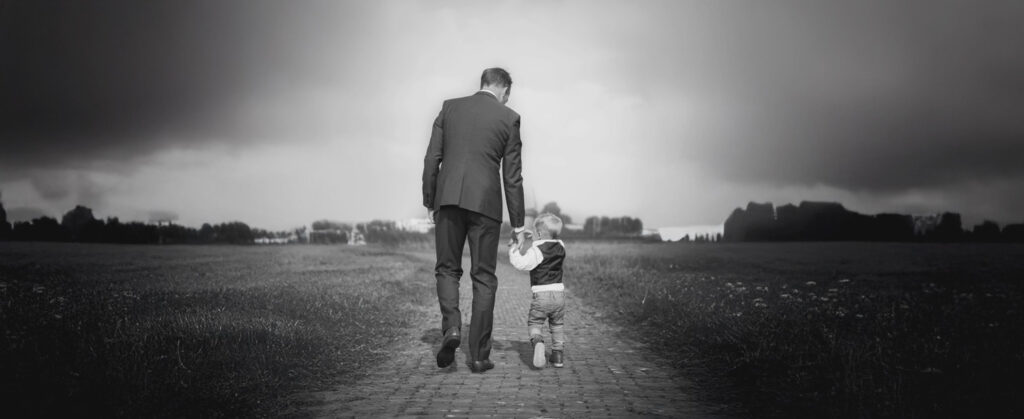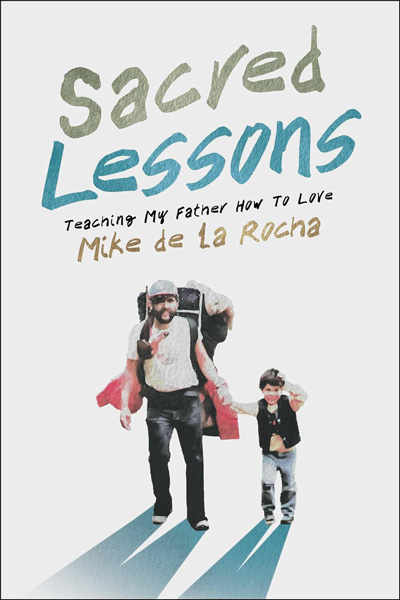
Estimated reading time: 7 minutes
Shifting the cycle of toxic masculinity toward a more compassionate, connected and expressive male paradigm—a Q&A with Mike de la Rocha
—
At Best Self, we’re always seeking greater personal awareness, collective unity, and a stronger expression of love, both of self and others. We were immediately drawn to the work of Mike de la Rocha, who is committed to breaking forever the cycle toxic masculinity and opening a portal to greater love, joy and connection—not just for males, but for all humans. We hope you enjoy his inspiring responses to our questions as much as we do!
Q: How have societal expectations of masculinity influenced men’s ability to express love and vulnerability?
Throughout my life, I’ve witnessed how the weight of masculinity—shaped by silence and societal expectation—has affected my ability to express love, be vulnerable, and ask for help. I wrote Sacred Lessons: Teaching My Father How to Love to answer a question that has haunted me for my entire life: Why was it so hard for my father to tell me that he loved me? What began as a search for understanding became a journey into our shared pain inherited through generations who were taught to suffer in silence. As I peeled back the layers, I saw how deeply the dominant culture embedded in me a belief that real men don’t cry.
In writing this book, I was forced to confront my own unhealthy patterns—and to challenge the stories I had been told about what it means to be a man. After years of therapy, I now believe that my father’s sudden passing was not just a tragedy but a consequence of not having the tools to speak his truth or feel safe in expressing his deep love. When we are denied the language of love, connection, and healing, we don’t just suffer—we disappear—or worse, we take our own lives. Sacred Lessons is my offering, my prayer, and my gift—for every man who’s ever been told to harden, and for the generations yet to come who I believe will rewrite this story and discover a healthier version of what it means to be a “man.”
Q: Do you believe that emotional patterns and trauma are passed down from one generation to the next? If so, what efforts can help to break this cycle of harm?
I wholeheartedly believe that trauma doesn’t just live in our memories and in our bodies—it is passed on through our DNA from generation to generation. But just as grief can be inherited, so too can resilience and the wisdom to heal. This is what our ancestral teachings tell us and what is confirmed by epigenetics. Science now speaks of Post-Traumatic Growth, but long before that, our ancestors practiced earth-based rituals to help us heal and remember our sacred purpose. This belief is at the heart of why I do this work—because healing is not only possible, it is our birthright.
The medicine we need lives in the mountains, in the ocean, in the stories of our people. It lives in nature and in the sacred cultural practices we’ve been conditioned to forget. That’s why I believe in building spaces—outdoors, together—where men can remember who we truly are. We all need that: connection, belonging, and space to heal together. Because the truth is, our futures are intertwined.
I don’t believe in accidents. I believe in sacred timing and purpose wrapped inside every painful experience. Even my father’s death, though devastating, became a portal for me. A passage into a deeper life I could have never accessed otherwise. I’m not just healing for myself. I’m healing for my father, for my grandfather, for every man who was never taught how to speak the language of love.
Q: How have patriarchy, toxic masculinity, and a lack of emotional education shaped the way men are taught to relate to others?
At the root of patriarchy lies a dangerous illusion—the belief in dominance, control, and superiority. I believe that we are intentionally denied emotional education because if we truly understood our inner worlds, we would be forced to confront how our society’s definitions of manhood are steeped in inequity and built on the backs of others’ pain. Movements like Black Lives Matter, the Zapatistas, and countless liberation struggles remind us of what Fannie Lou Hamer said years ago, “Nobody’s free until everybody’s free.” If men are conditioned to believe we are above women—that our needs come first, that our emotions are threats—it’s no wonder that violence, inequality, and disconnection are so deeply woven into our lives.
But this isn’t just a story of what’s broken—it’s also a story of what’s being reborn. I see something sacred unfolding every day. I see men breaking their silence. Fathers holding their sons and saying, “I love you.” Brothers learning how to say “I’m sorry.” Friends choosing therapy over numbness. This is the quiet revolution unfolding in living rooms, sweat lodges, and barbershops. It’s the story we are co-writing, together. One act of tenderness at a time. One redefinition of manhood at a time. And in that story, there is hope—not just for men, but for all of us.
Q: Could you reflect on the challenges men face in expressing emotions and the impact this has on their relationships with family, friends, and themselves?
Countless barriers keep men from expressing what lives deep inside all of us, and the consequences ripple through every corner of our lives. From an early age, we’re taught to grip our pain tightly, to bury our emotions so deeply that we forget who we are. But that silence is not neutral. It becomes a wall between us and the people we love. It fractures our friendships, distances us from our families, and separates us from our truth. These cycles, when left unhealed, become legacies.
I wrote Sacred Lessons: Teaching My Father How to Love to give voice to what my father never learned how to say. To offer my son—and all of our sons—a new way of being. One where strength isn’t defined by how much we can suppress, but by how deeply we’re willing to feel.
Vulnerability is not weakness—it’s the beginning of true freedom. And if we want to change the world, we must first change the stories we tell ourselves about what it means to be a man.
Q: Lastly, your book explores the value of finding community and belonging, especially for those who feel isolated or disconnected from others; could you expand on that?
One of the central themes of Sacred Lessons: Teaching My Father How to Love is that healing is never a solitary act. Healing happens in community. My journey has shown me that my healing is not just my own. It is braided into the stories of those who came before me and into the hopes of those who will come after. While I must choose, every single day, to show up for my healing, that path becomes more possible when I walk it alongside others. What we all long for, beneath the masks we wear, is to feel like we belong and to know that we are not alone. That’s the sacred thread of our interdependent humanity: connection.
This is why we must create spaces free from shame and judgment—places where men can learn how to love and be loved, how to forgive and be forgiven. We must meet men where they are, with an understanding that men are taught a false and harmful narrative. Many of us men are still those hurt and scared little boys screaming for help and acceptance. What I’ve seen, heard, and lived—and what research confirms—is that men aren’t simply angry. We’re isolated and looking for our place in a rapidly changing world. Any meaningful effort to reach men must begin with presence, community, and love. It is in the presence of others in a safe space that we remember who we are and begin the sacred work of remembering our true selves once again.
You may also enjoy Interview: Lewis Howes | Redefining Masculinity, by Kristen Noel
